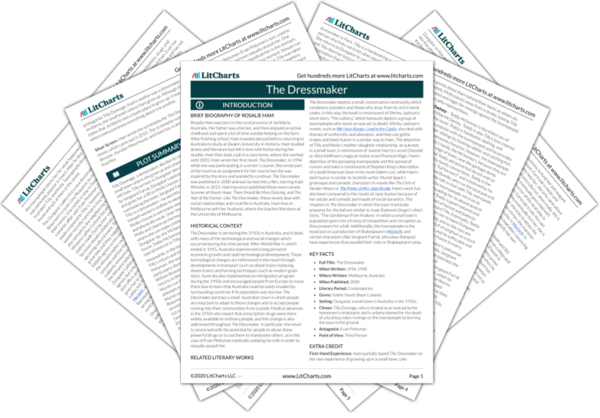Dungatar is a very judgmental place where behavior that’s considered outside the norm is not tolerated. However, Molly’s statement suggests that no one can live up to these high standards of behavior because everyone exhibits preferences or behavior which could be considered strange by others. Rather than openly admit this, the townspeople choose to judge and persecute those who do not fit in to deflect attention from their own unconventional behaviors. This suggests that the townspeople are afraid of being ostracized, and they cast out other people to prevent this from happening to themselves.
